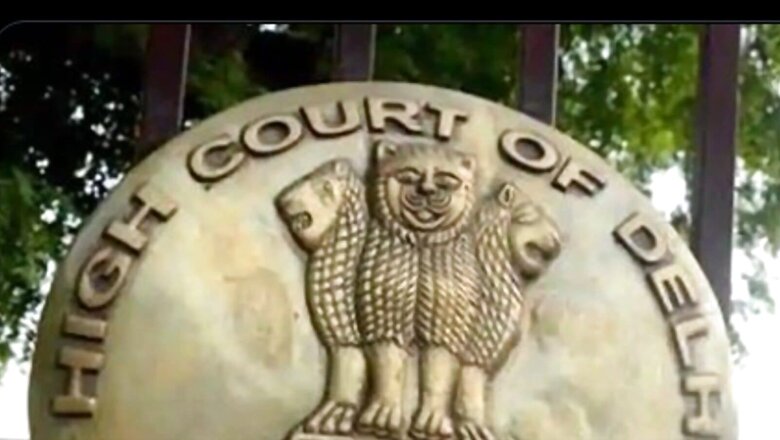
views
The Delhi High Court on Wednesday directed the National Council for Teacher Education (NCTE) to open within two weeks its online portal to accept and timely process the applications by institutions for grant of recognition for conducting new teachers’ education courses for the academic session 2022-23. Justice Rekha Palli allowed a batch of petitions by several institutions assailing NCTE decision refusing to open its portal for submission of their applications for recognition of new teachers’ education courses – including integrated programmes.
The high court said that NCTE which is obligated to maintain high standards of teacher education institutions sought to impose a total ban on prospective entrants which would lead to a greater shortage of trained teachers and worsen an already existing crisis. The NCTE defended its decision and said that the National Education Policy (NEP) 2020 envisaged that by 2030, all teaching institutions would offer a four-year integrated teaching education course, and thus a decision was taken to put on hold the commencement of private teaching institutions and permit only commencement of the integrated course in central and state government institutions.
The high court however said that when the majority of teachers’ education institutions are in the private sector, the restriction on commencement of new courses was faulty, which would run counter to the National Education Policy (NEP) 2020 and be against the interest of the general public. Justice Palli asked the authorities to process the applications for recognition by the institutions which were not able to submit an application for any new course after 2016 and said that a citizen cannot be deprived of the right to establish and administer an educational institution in terms of Article 19(1)(g) unless the legislature decides to impose a reasonable restriction in the general public interest by way of a law.
Read: Teacher’s Day: President Droupadi Murmu to Present National Awards to 46 Teachers on September 5
The high court also opined that the NEP does not, in any manner, suggest that there should be a complete halt to recognition of new courses in teacher education for years together. There is an acute shortage of trained teachers in the country which is still grappling with the problem of illiteracy in several regions and the ban was brazenly made applicable to at least 92 per cent of the teacher education institutions, it noted.
Such a ban which has been brazenly made applicable to at least 92 per cent of the teacher education institutions (private institutions), will in fact lead to an even greater shortage of trained teachers in the country, and worsen an already existing crisis. This will not only be against the aim of the NEP, 2020 but will also be against the interest of the general public, the court noted. The writ petitions are, accordingly, allowed by directing the respondents to open the online portal within two weeks and thereafter accept and process in a timely manner, the applications, as may be submitted for grant of recognition for conducting new teaching courses for the academic session 2022-23, said the high court.
In the present case, the high court stated, a mere decision taken by the general body of the respondent Council to impose a total ban or its simple inaction not to open the portal for years together cannot be said to be falling within the ambit of the term law which can impose a restriction on the fundamental right to conduct trade or business. In my considered view, even though this initiative taken by the respondents, to start as a pilot project, the 4-year ITEP course only in Central and State Government institutions, and in the meanwhile refuse granting recognition to private institutions, may on the first blush appear to be justified, but when examined in the light of the data presented by the respondents themselves, is clearly faulty and against the public interest, the judge said.
I am, therefore, inclined to agree with the petitioners that a citizen cannot be deprived of this right to establish and administer an educational institution unless the legislature in its wisdom decides to impose a reasonable restriction in the general public interest on the exercise of this fundamental right, the judge said.
Read all the Latest Education News and Breaking News here




















Comments
0 comment